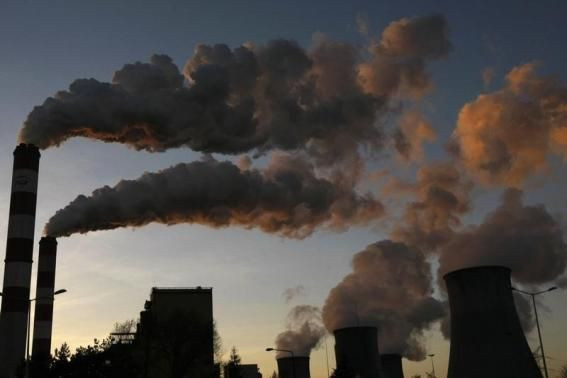EU Strikes Compromise To Set New Climate Target

(Reuters) - European Union leaders struck a deal on a new target to cut carbon emissions out to 2030, calling it a new global standard but leaving critics warning that compromises had undermined the fight against climate change.
Talks in Brussels stretched into the small hours of Friday as Poland battled to spare its coal industry and other states tweaked the guideline text on global warming to protect varied economic interests, from nuclear plants and cross-border power lines to farmers whose livestock belch out polluting methane.
In the end, an overall target was agreed for the 28-nation bloc to cut its emissions of carbon in 2030 by at least 40 percent from levels in the benchmark year of 1990. An existing goal of a 20-percent cut by 2020 has already been nearly met, in part due to the collapse of communist-era industry in the east.
EU leaders called the 40-percent target an ambitious signal to the likes of the United States and China to follow suit at a U.N. climate summit France is hosting in December next year.
"Deal!" tweeted Herman Van Rompuy, who chairs the European Council, the gathering of EU leaders. "At least 40 percent emissions cut by 2030. World's most ambitious, cost-effective, fair climate energy policy agreed."
But environmentalists had already complained that it could still leave the EU struggling to make the at least 80-percent cut by 2050 that its own experts say is needed to limit the rise in global average temperatures to two degrees Celsius.
And they were further disappointed by a softening in the final agreement of goals for increasing the use of solar, wind and other renewable energy sources and for improving efficiency through insulation, cleaner engines and the like.
Diplomats said bargaining by Poland's new prime minister Eva Kopacz, who faces an election next year, secured a complex set of allowances in the EU system for trading carbon emissions to soften the impact of the target on Polish coal miners and the coal-fired power stations on which its 38 million people depend.
Concerns in Britain and some smaller states about additional EU regulation that might especially crimp a new expansion of climate-friendly but controversial nuclear power, saw targets for increased renewable use and energy efficiency softened, diplomats said.
Van Rompuy said the two targets would be for improvements of 27 percent, compared to originally proposed goals of 30 percent.
Portugal and Spain succeeded in getting a harder target for the level of cross-border connections, something they had been pushing France to accept so that they could export more of their spare energy north into the rest of the continent.
© Copyright IBTimes 2025. All rights reserved.





















